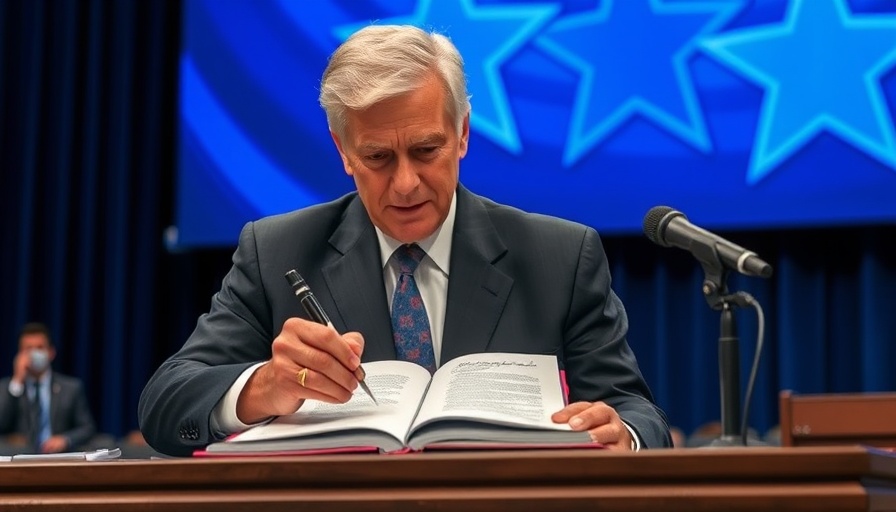
Understanding the Impact of Trump's New Policies on Construction
As the dust settles from the whirlwind of executive orders issued by President Donald Trump, contractors across the nation find themselves in a state of uncertainty. With sweeping changes affecting labor, project funding, and compliance, navigating the new landscape requires both vigilance and adaptability.
What’s Changing in the Construction Sector?
President Trump’s administration has quickly altered existing policies that were put in place by earlier administrations. The federal freeze on disbursing funds related to the Infrastructure Investment and Jobs Act and the Inflation Reduction Act has left various projects in limbo. Contractors are now tasked with understanding the far-reaching implications of this directive, particularly how it may stall infrastructure and climate project timelines.
The Need for Compliance and Adaptability
According to a client advisory from Arnold & Porter, staying informed is crucial. Contractors are encouraged to carefully audit existing programs and maintain compliance with changing federal requirements. This includes reviewing contract terms and monitoring for new agency guidance. Such diligence will be necessary to avoid potential hurdles that may arise due to these evolving policies.
Diversity and Inclusion Policies Under Review
Another critical shift is the rollback of diversity, equity, and inclusion initiatives that were implemented under the previous administration. The implications for contractors—especially those who benefitted from such policies—are significant. Contractors must assess how these changes can impact workforce dynamics and ensure compliance with the revised focus areas of the federal government.
Future Directions for Energy Projects
The implications of Trump’s “Unleashing American Energy” directive are still being understood. This order appears to prioritize traditional energy sources while introducing a potentially lengthy approval process for projects aimed at promoting electric vehicles or renewable energies. As this plan unfurls, contractors focused on sustainable practices may need to reconsider their strategies in order to adapt to the new regulatory environment.
The Importance of Collaboration and Communication
In such a volatile regulatory climate, collaboration is more crucial than ever. Contractors must maintain robust lines of communication not just within their teams, but also with federal agencies and clients. Establishing trust and transparency can cushion the effects of sudden policy shifts and ensure processes are in place for timely compliance and project execution.
Thoughts on Navigating New Challenges
This rapidly changing landscape can feel daunting, but it also presents an opportunity for growth. Contractors who remain proactive and educated about policy changes can set themselves apart. Whether by refining their own operational strategies or advocating for updated policies that reflect the industry's needs, there exists a powerful chance for those in construction to shape their future.
In these transformative times, success will go to those willing to adapt and evolve. The potential for future advancements in sustainable building practices and infrastructure awaits those ready to navigate challenges with insight and determination.
 Add Row
Add Row  Add
Add 




Write A Comment